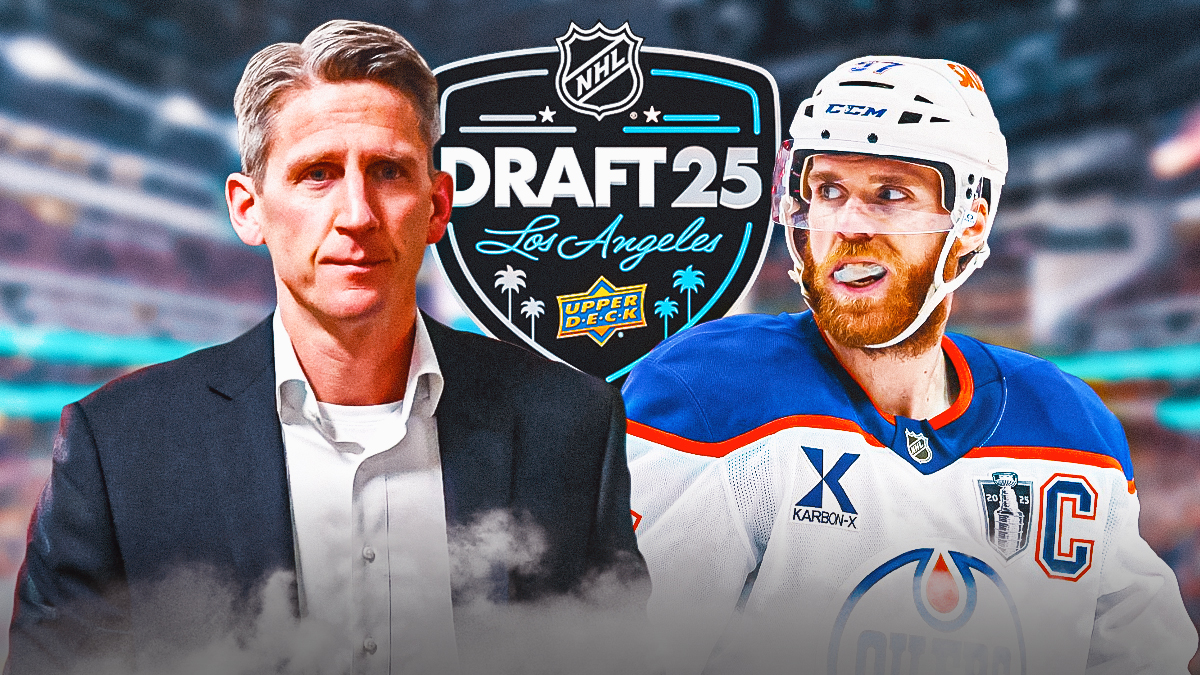The Edmonton Oilers made a major upgrade in net last month, signing free agent Jack Campbell to a lengthy contract.
Campbell is 30 years old and had spent the last two and a half years with the Toronto Maple Leafs. This past season, Campbell managed a .914 save percentage in 49 games with Toronto. His contract with the Oilers is for five years and carries a $5 million cap hit.
Let's examine how the contract looks for Edmonton.
The Player
Aside from maybe Darcy Kuemper, Jack Campbell was the top free agent goalie on the market this year. He was coming off of two quality seasons and was one of the few key netminders who was available.
That said, Campbell only emerged as a legitimate starter recently. He was originally selected 11th overall by the Dallas Stars in 2010 but struggled afterward, playing a single NHL game for the Stars before being traded to the Los Angeles Kings ahead of the 2016-17 season. He eventually earned a backup role with the Kings in 2018-19 and played well with the team until he was traded to Toronto in 2020.
Campbell's career really took off with the Maple Leafs. He took a larger role with the team in 2020-21 with Frederik Andersen dealing with injury troubles and a decline in performance. Campbell posted a .921 save percentage in 22 games and then went on to become the team's clear starter this past season.
The netminder isn't going to be tasked with 60-plus games but can likely be counted on for somewhere around 45 and 50 starts.
The Term
Five years for Campbell may be a year more than ideal or expected. The lack of sample size of Campbell being a starter does raise some questions about the lengthy deal. He's really only been a clear starter for a single season and has still only played 135 career NHL games.
I thought a comparable contract would've been Linus Ullmark's four-year deal with the Boston Bruins. Ullmark earned a contract worth $5 million per year with the Bruins as a free agent last offseason. The goalies had relatively similar stats and experience but Ullmark's deal was a year shorter.
Campbell is also already 30 years old and will be 35 by the time the deal expires. That said, goalies often don't face the same decline as many skaters of the same age, so there's less of a concern with a drop-off in performance.
Campbell should be Edmonton's starter for the foreseeable future and while the term may be a bit long, it's far from an issue.
The Cap Hit
Even with the lack of sample size as a starter, $5 million for Campbell is a fair price. It's comparable to recent contracts for the likes of Thatcher Demko, Darcy Kuemper, Robin Lehner, Juuse Saros, Semyon Varlamov and Ullmark, as mentioned above.
While Campbell isn't necessarily a high-end starter, he's an instant upgrade for the Oilers. The cap hit is also low enough that the Oilers aren't committing a ton of money to him specifically to solve all goaltending issues. He could be used in a sort of tandem if needed, partnered with a cheap but capable backup down the road.
For instance, Stuart Skinner is poised to take an NHL role this season behind Campbell. He has a year left on his contract and given his age, he's not a goalie the team will want to lose to cap constraints. However, Campbell's $5 million cap hit is cheap enough that assuming Skinner plays well enough for a raise on an extension, the Oilers should be able to factor him in on a bridge deal. It's a situation for later on but something to consider for the future.
Edmonton did a good job finding an upgrade without breaking the bank to do so. Campbell immediately addresses an area of need but won't drastically limit cap flexibility for the team.
The Partial No-Trade Clause
Attached to the contract is a partial no-trade clause. Jack Campbell will have a 10-team no-trade list for each year of the deal.
Realistically, the partial no-trade clause won't be overly impactful for the Oilers. Even if the worst came and they needed to move on from Campbell, a 10-team no-trade list would certainly leave the team with options.
Considering Campbell was a sought-after free agent and had a lot of leverage in who he chose to sign with, the Oilers did a good job not offering up significant trade protection.
Campbell should be a great fit with the Oilers. While goaltending isn't the team's only concern, it was certainly the main area that needed to be addressed. The team did a good job finding an upgrade at a reasonable price to help them contend.
Given that Campbell hasn't been a starter for long, the deal doesn't come without risks. That said, the Oilers didn't have a ton of options in terms of goaltending upgrades and adding Jack Campbell was certainly the move that made the most sense.
Grade: B+


















